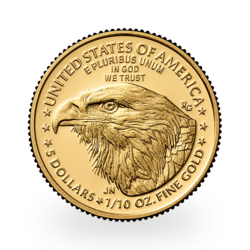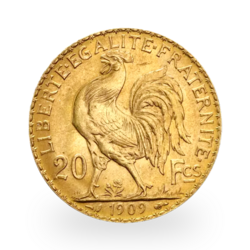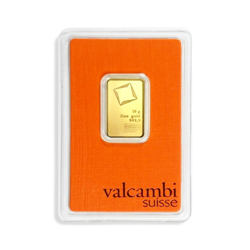Dan Popescu: Hello, my name is Dan Popescu. I’m a financial analyst and, on behalf of GoldBroker.com, I have the pleasure today to interview Dr. Philippe Herlin. He is a researcher in finance and has a doctorate in economics from the Conservatoire des arts & métiers de Paris. He is familiar with extreme risk thinkers like Mandelbrot and Nassim Taleb and is a follower of the Austrian school of economics. He brings his own perspective on the actual crisis with the Eurozone, the public debt and the banking system. He has written several books, among which a reference on gold, “L’or: un placement d’avenir” (Gold: an investment for the future). He hopes that gold will play a more and more important role in our economies by being fully re-monetised eventually. He is also a collaborator here with GoldBroker.com.
Hello, Philippe.
Philippe Herlin: Hello, Dan.
Dan Popescu: We are starting quite a hectic week... we have seen today, after the events in China... their financial markets declining for the last two or three months by roughly 40%... Friday and today there’s a 1,000-point decline on the Dow Jones... markets are declining as well in Europe; there has been a very small recovery, but gold hasn’t moved much. Could we get your point of view on what’s happening presently on the financial markets?
Philippe Herlin: Sure. What we can say in regard to this crisis in China that has repercussions in Europe and the United States is that it tells us that we still haven’t come out of the 2008 crisis. We must understand that since the subprime crisis, we have been led to believe that we were coming out of the crisis, that we were having a little growth... only because central banks have been printing a lot of money and taking interest rates down to zero, in the United States and in Europe. In China, things were done a little differently: they mainly tried to boost the economy by investing in infrastructure and real estate using regional banks that were encouraged to make loans available easily. But then the Chinese central authorities realised there was a lot of bad credit out there and started to put a stop to it, which is causing a decline in activity... One thing we have to know: China has been lying with its statistics – well, all countries do lie a little about their statistics – but when China announces 7% growth... well, no one believes it now. But when we look at real, physical numbers like railway freight transportation, power consumption etc, we rather get a 2-3% number for growth in China. And markets are starting to realise that, the proof being that the last remaining hope for growth, the last locomotive, is grinding to a halt. And now, all of a sudden, we could say that the veil is being torn apart, that the recovery we’re being sold since March 2009, exactly, as a matter of fact, when the Fed initiated its first quantitative easing (QE) program... well, that this so-called recovery, actually, is all smoke and mirrors. In the United States, for instance, growth has never reached above 2% on average, which is not such a good performance for the U.S. And in Europe, we can’t say they’re shining, being close to zero. And now China and the emerging countries... Brazil, for instance... no one is talking about it anymore, it’s finished, there is no more growth in Brazil. And now China, the last big locomotive that we thought was able to take us out of the crisis... well, it is now idle... The markets are starting to realise there is no floor underneath, no support.
Dan Popescu: We have seen, last week, an increase in the price of gold in all currencies. Gold has been going up for a while in relation to the euro, the ruble, the rupee. But last week, we’ve seen it go up against the US dollar as well. Does this constitute a change? Do you think the decline of gold is over... this phase where everyone thinks that gold is going down to zero?
Philippe Herlin: Up to now, the stock market had been profitable, there was a little growth, and many people had put their money into it. But now, with the markets declining, what’s left for investing venues? Real estate is getting into bubble territory in the United States and in other countries as well, because it’s mainly due to easy credit, there is no real growth... there is no real recovery. So, what’s left to invest in if we have some money? Well, more and more people are going to start to realise that gold is a good investment. Sure, it has gone up, but ever so slightly, marginally. So now is a good time for those who had stocks, or sovereign bonds, or life insurance policies etc... all things that risk suffering in the months to come, this is the time. Gold is not expensive, it has gone up a little, but it’s still marginal, so now is the time to act.
Dan Popescu: May I ask your opinion on the gold reserves. We’ve had the recent announcement of an update of Chinese gold reserves after five years, the constant purchasing by the Russian central bank and by other countries. What’s your take on this update by China... do those numbers seem credible to you?
Philippe Herlin: Not really, because China announced something like 1,500 tonnes... not a great deal, and newspapers have been saying, “Wow, it’s incredible, more than 50% in five years”... but it’s nothing, when we know that China has gold mines and that all that production remains in the country. On the other hand, we know that China is buying gold, either directly or through other venues in Singapore, Hong Kong etc... It is obvious that Chinese gold reserves are greatly superior to those official numbers. And I believe that China – and this is also the case for Russia – is not announcing the real numbers because it is keeping this card in its sleeve. It would be of no use for them today to announce they have so many thousand tonnes of gold – well, of course, there would be some kind of shock, the markets would be a little unsettled – they are keeping this card in their sleeve for the moment where there will be problems with the currencies... because, at the moment, all the currencies are being devaluated – the dollar is stronger, but only in relation to other currencies – emerging countries’ currencies are declining, the euro is declining and China has devaluated its currency several times, which is what created doubt and worries in the global economy. We can’t really say for sure that we are in a currency war, because so far the movements have been limited, they have not been too severe, but we could get there quickly enough, in light of what is happening on the financial markets, the stock markets... we could get there and then, for China to reveal it has a lot of gold could be reassuring. But I think they’re keeping this for later in the future.
Dan Popescu: Do you think China is preparing to back its currency with gold, or to back it... some people are talking about a gold backing for the Yuan... is that their strategy? Or is it simply because they are unsure of the Americans’ reaction, especially in regard to the SDRs? Because they have announced their intention to have the Yuan be part of the basket of currencies comprising the SDRs?
Philippe Herlin: Yes, of course, this is the other reason. China has asked that the Yuan be part of the SDR’s basket of currencies. Now only the dollar, euro, yen and pound are in it, and it would give the Yuan some prestige, thus generating more trade and purchases in Yuan – which is what happens when a currency is a reserve currency – and in this context, it’s not really a good idea to announce they have a lot of gold now... either they join the IMF, which applies a mentality of paper money, or they announce higher reserves – but they won’t do both at the same time. I think this is why China hasn’t announced its real tonnage of gold. China is presently manoeuvring to hook its Yuan to the SDRs hoping to give it more value and importance in international trade... The Chinese are signing many bilateral agreements with Asian countries to trade in Yuan instead of dollars, which is bound to irritate the Americans, because what makes the US dollar strong is the fact that it is the currency for global trade in most commodities and many industrial products... so it may become unsettling for the United States. So we can see, in the background, this “war” between the two foremost economic powers.
Dan Popescu: Are you surprised by the silence of the United States concerning the Chinese strategy? I look at all those bilateral agreements that China is signing which aim at one thing only: to bypass the US dollar. And the Americans haven’t reacted much. Will they accept to play along and let the Yuan be part of the SDRs? They still have a right of veto, don’t they?
Philippe Herlin: Hard to say... since the Americans don’t like this, they could always use this right of veto, of course, but they could act in a roundabout way. Because using the right of veto is akin to a direct confrontation with your adversary – not a very suitable diplomatic approach. They might choose to exert some kind of pressure elsewhere. There is also a sort of media war about the currencies, the US dollar and the Yuan... and I think the Americans aren’t too unhappy about the Chinese stock market plunging these days – they may feel that China is being “put back in its place” – a little like the stock market crisis in Japan in the ‘90s had put an abrupt end to the Japanese dream of economic expansion. Japan was touted as being on the way to become the second largest world economy, close behind the United States. Well, since the implosion of the bubble in the ‘90s, Japan is way more discreet, so to speak. And I suspect the United States wouldn’t mind China taking it on the chin a little so that it becomes a bit less pretentious.
Dan Popescu: Yes, China has overplayed it... We’ve seen these last two or three months, a drop in the price of gold while, at the same time, there has been a huge increase in demand for gold coins and 5-gram ingots, which call for large premiums. The Australian finance minister has declared that if they could produce more they would... apparently Germans bought a lot of gold on fears of what was happening in Greece, perhaps. But, surprise! there was also more buying in the United States and Canada. So the demand is strong worldwide. But it appears that in 2008 it was mainly central banks doing the buying, whereas this time it seems we have mainly private investors buying. What do you think? How do you see that in Europe?
Philippe Herlin: There is something we’ve known for several years, that there is a disconnect between the physical gold market, which is thriving, whether for coins or bars, in the United States, in Asia, a little less in Europe, in France, and the gold paper market, which we know is being manipulated by the bullion banks... A while back, when we were saying these things, we were dubbed conspiracy theorists with tinfoil hats, but since then, there have been trials held in regard to different markets, not only for gold, but for currencies as well. We have witnessed several large international banks under trial condemned to very hefty fines. This confirms that the gold market is manipulated and this is why an eventual gold buyer must not focus on the day-to-day price action but rather focus on the intrinsic value of gold, which he must compare to the intrinsic value of a stock portfolio, in the United States, in Europe, in China or a sovereign bond portfolio, denominated in dollars, euro, yen, whatever. An investor must ask oneself these questions instead of closely following the indices. And when he does, he will realise that owning physical gold is a necessity, at least to have a part of one’s savings in gold. And judging from what is happening these days, it could even be better to allocate more gold to one’s portfolio, because things may get quite hectic soon. Of course, one thinks about the stock market, but let’s not forget the currencies, still declining, although there is still no abrupt moves – but it could happen any time – and then there is the bond market, sovereign bonds, an enormous market... for the moment, it is idle, but it may soon be affected. So there – for anyone not holding any physical gold or just holding a little, it is imperative to think about it.
Dan Popescu: There have been many articles these last four months about gold confiscation in the United States and, at the same time, about banishing cash... There are economists – not any economists, but renowned American and German economists who have, supposedly, met secretly with central bankers to discuss eliminating cash... There already are many restrictions in place... I believe that in France, recently, there has been a law enacted to limit the transportation of gold and cash... How do you see it? Do you think we might be forbidden to use cash or gold?
Philippe Herlin: I don’t think so... I think it is, above all, because the states are looking to lock in fiscal revenue at all cost, so they are progressively trying to take down the black market that uses cash, as much as they can, by restricting the use of cash. But I consider, personally, that banishing the use of liquid cash or confiscating gold would amount to shifting toward a society that is not so democratic anymore... because, next, freedom of speech may be attacked, private property and so forth... I don’t think we’re quite there yet. And I would add that the risk of confiscation would be for your apartment, your fine paintings... whereas for gold, it can at least be transported easily. One can try to escape with it, but one cannot escape with one’s house, for instance. So, if it were to happen, one would be better off owning gold than real estate.
Dan Popescu: Exactly. Thank you very much, Philippe, for your very interesting comments. It’s nice to hear a European point of view. People can follow you on GoldBroker.com, where you regularly post your analyses. Once again, thank you very much, Philippe.
Reproduction, in whole or in part, is authorized as long as it includes all the text hyperlinks and a link back to the original source.
The information contained in this article is for information purposes only and does not constitute investment advice or a recommendation to buy or sell.

















